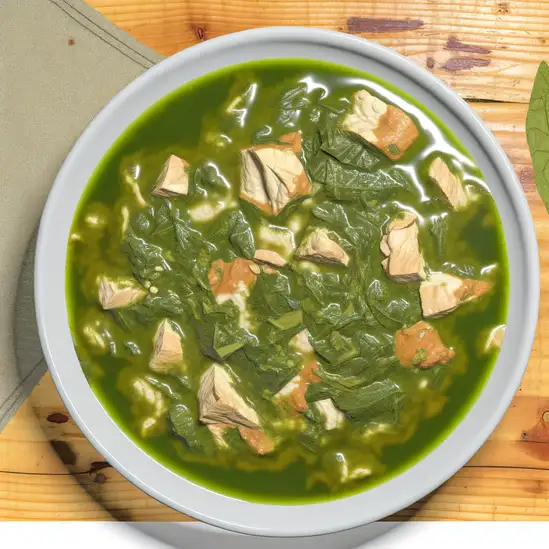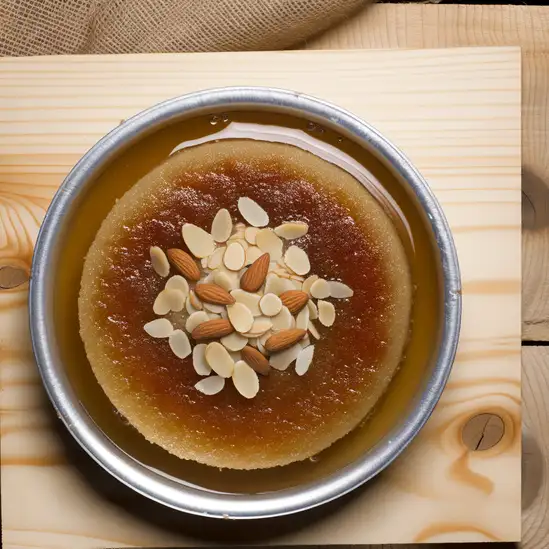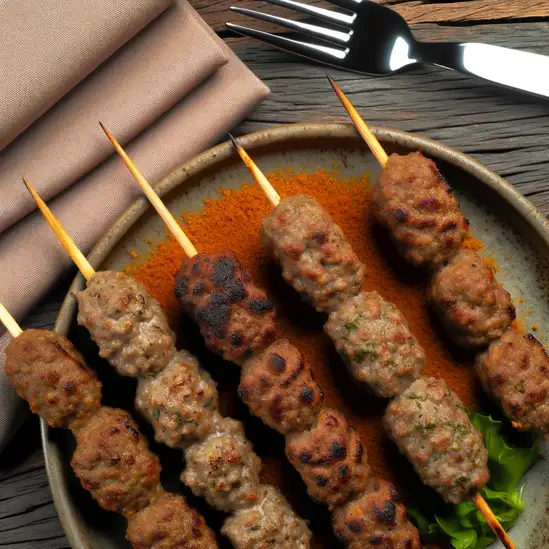


If you find yourself wandering through Giza,you’ll immediately sense a unique blend of ancient mystery and lively modern life humming beneath the desert sun. The moment you step near the Great Pyramids,there’s this almost electric feeling in the air—as if the stones themselves are whispering stories from thousands of years ago. The vast,golden sands stretch out under a brilliant blue sky,and the silhouettes of the pyramids against the horizon are simply breathtaking. You can almost hear the faint echoes of history carried by the warm breeze. Walking through the bustling streets nearby,the city’s vibrant character unfolds. The calls of street vendors selling fresh falafel and sweet hibiscus tea mingle with the chatter of locals and the occasional clatter of camel hooves on cobblestones. The aroma of spices—cumin,coriander,and cinnamon—wafts through the air,inviting you to taste the rich flavors of Egyptian cuisine. It’s a place where the past and present dance together,where you can sip mint tea in a cozy café while gazing at the timeless pyramids just a few miles away. What really makes Giza special is how it feels alive with stories—both ancient and everyday. The warmth of the people,their welcoming smiles,and the vibrant street life create a sense of connection that stays with you long after you leave. It’s not just about seeing the monuments; it’s about feeling the pulse of a city that’s been a crossroads of culture and history for millennia.
The information on this page is currently being reviewed by Tripkliq and should be used as a guide only
Eng word: Hello
Eng pronunciation: Marhaban
Local language: مرحبا
Eng word: Goodbye
Eng pronunciation: Wada'an
Local language: وداعا
Eng word: Thank you
Eng pronunciation: Shukran
Local language: شكرا
Eng word: How much
Eng pronunciation: Kam al-si'r
Local language: كم السعر
Eng word: Toilet
Eng pronunciation: Mirhad
Local language: مرحاض
Eng word: Help me
Eng pronunciation: Sa'idni
Local language: ساعدني
Eng word: Yes
Eng pronunciation: Na'am
Local language: نعم
Eng word: No
Eng pronunciation: La
Local language: لا
Eng word: Excuse me
Eng pronunciation: Afwan
Local language: عفوا
The Great Pyramids, one of the Seven Wonders of the Ancient World, have stood for over 4,500 years as marvels of ancient engineering. The largest, the Pyramid of Khufu, was the tallest man-made structure in the world for over 3,800 years.
The Great Sphinx of Giza, with the body of a lion and the head of a human, is the oldest known monumental sculpture in Egypt. It measures about 73 m long and 20 m high and remains an icon of Egypt’s ancient civilization.
During the Old Kingdom, the city played a significant role as part of the ancient capital, Memphis. Giza served as an important necropolis and religious center.
The Khufu Ship, found in 1954, is displayed in the Solar Boat Museum near the Great Pyramid. This full-size ship, which was buried for over 4,600 years, provides insight into ancient Egyptian shipbuilding techniques.
Discovered in Giza, the tomb of Queen Khentkaus I, potentially a ruler between the 4th and 5th dynasties, provides important clues about the political and social transitions of ancient Egypt.
Archaeological evidence discovered a workers' village near the pyramids. Flourishing during the 4th dynasty, it showcases the lives of those who built the pyramids, including aspects of their daily life, diet, and healthcare.
The Giza Plateau offers one of the most iconic views in the world, where visitors can witness the pyramids and the Sphinx together, against the backdrop of the modern city skyline.
In 1979, the pyramid complex at Giza was designated a UNESCO World Heritage site, recognizing its monumental importance and contribution to global heritage.
The Giza Necropolis also includes the tombs of the nobles, which are rich in art and hieroglyphics, offering insights into the lives of those who served the pharaohs and their beliefs in the afterlife.
In Giza, the most common Power Adaptor is Type C, Type F.



A traditional dish made with layers of rice, bread, and meat, often served with a garlic and vinegar sauce, especially popular during festive occasions.

A hearty mix of rice, lentils, pasta, and topped with a spicy tomato sauce and crispy onions, Koshari is a beloved street food in Egypt.

A green soup made from the leaves of the jute plant, typically served with rice and chicken or rabbit, known for its unique flavor and texture.

Vegetables such as zucchini, eggplant, and bell peppers stuffed with a mixture of rice, herbs, and spices, then cooked in a tomato sauce.

A sweet semolina cake soaked in syrup, often garnished with almonds or coconut, popular as a dessert in Egyptian cuisine.

Egyptian falafel made from fava beans instead of chickpeas, seasoned with herbs and spices, and deep-fried until crispy.

Skewers of minced meat mixed with spices, grilled to perfection, often served with pita bread and tahini sauce.
Cairo feels like stepping into a living,breathing storybook where ancient history and vibrant modern life collide in the most exhilarating way. The moment you arrive,you’re wrapped in a tapestry of sounds—the call to prayer echoing from minarets,the lively chatter of street vendors,and the hum of bustling markets. The air carries a mix of spices,fresh bread,and the faint scent of the Nile,inviting you to slow down and soak it all in.
Walking through Cairo’s streets,you’ll find yourself mesmerized by the city’s contrasts. Towering minarets and centuries-old mosques stand proudly beside colorful street art and lively cafes where locals sip strong,sweet tea. The city pulses with energy,yet there’s a warmth in the smiles of shopkeepers and the inviting aroma of freshly baked falafel and koshari wafting from corner stalls. It’s a place where every turn reveals a new story,from the majestic pyramids just outside the city to the labyrinthine alleys of Khan El Khalili bazaar,where you can haggle for handwoven textiles or sip mint tea while watching artisans at work.
What makes Cairo truly unforgettable is its spirit—a blend of resilience,hospitality,and deep-rooted pride in its heritage. It’s a city that invites you to explore,taste,and connect,leaving you with a sense of wonder and a craving to return. Trust me,once you’ve wandered its streets and felt its heartbeat,Cairo stays with you long after you’ve left.
Located on the Sinai Peninsula,Sharm El Sheikh is famous for its stunning beaches,vibrant coral reefs,and world-class diving spots in the Red Sea. It's a popular resort city for relaxation and water activities.
ExploreIf you’re dreaming of a place where the sun seems to linger just a little longer and the sea whispers stories of ancient times,Hurghada is that kind of magic. Walking along its coastline,you’re greeted by the endless stretch of turquoise waters meeting golden sands,with the salty breeze carrying the faint scent of jasmine and spices from nearby markets. The vibe here is relaxed but alive—locals chatting animatedly in cafes,fishermen hauling in their catch,and the distant hum of boats slicing through the Red Sea.
What really makes Hurghada special is how it blends the raw beauty of nature with a warm,welcoming culture. The city pulses with a laid-back energy,where you can dive into vibrant coral reefs teeming with colorful fish one day,and the next,wander through bustling souks filled with the aroma of freshly ground coffee and sweet dates. At night,the air cools,and the city lights flicker on,inviting you to savor freshly grilled seafood while the call to prayer echoes softly in the background.
There’s a genuine friendliness here that makes you feel like you’re not just visiting,but becoming part of a story that’s been unfolding for centuries. Whether you’re sipping mint tea with new friends or watching the sun dip below the horizon in a blaze of orange and pink,Hurghada leaves you with a sense of calm adventure and a craving to come back for more.
Alexandria feels like stepping into a story where the Mediterranean breeze carries whispers of ancient legends and modern life mingles effortlessly with history. The moment you arrive,there’s this unmistakable rhythm—a blend of seagulls calling overhead,the gentle slap of waves against the Corniche,and the distant chatter of locals sipping strong,sweet tea in cozy cafes. The air is tinged with salty sea spray and the faint aroma of freshly baked bread from nearby bakeries,inviting you to slow down and soak it all in.
Walking through the city,you’ll notice how Alexandria wears its past with pride but never feels stuck in it. The grand library,a modern marvel,stands as a beacon of knowledge,while the ancient ruins peek out from unexpected corners,telling tales of Cleopatra and Roman emperors. The streets buzz with a unique energy—vendors selling fragrant spices,fishermen hauling in their catch,and artists sketching the ever-changing seascape.
What really makes Alexandria special is its warmth. The people here have a relaxed charm,always ready to share a story or recommend a local dish like the creamy,tangy Alexandrian fish sayadeya. As the sun dips below the horizon,the city transforms; lights twinkle along the waterfront,and the scent of grilled seafood mingles with the salty air. It’s a place that invites you to linger,to explore,and to fall a little in love with its timeless spirit.
Imagine stepping into a place where history whispers from every stone and the Nile’s gentle breeze carries stories thousands of years old—that’s Luxor. The moment you arrive,there’s this warm,golden light that seems to wrap around you,softening the edges of the ancient temples and bustling markets alike. Walking along the riverbank at sunset,you’ll hear the distant call of a muezzin blending with the chatter of locals and the rhythmic splash of feluccas cutting through the water. It’s a city that feels alive,not just with people but with the pulse of time itself.
The air is rich with the scent of spices and freshly baked bread from street vendors,mingling with the faint aroma of lotus flowers floating nearby. Exploring Luxor’s vast temples and tombs,you can almost feel the hands that carved the hieroglyphs,the weight of pharaohs’ legacies pressing gently on your imagination. But Luxor isn’t just about the past—it’s about the vibrant present,too. The friendly shopkeepers invite you to taste sweet hibiscus tea or sample local dates,and the lively souks buzz with colors and textures that make you want to reach out and touch everything.
What makes Luxor truly special is this blend of awe and warmth. It’s a place where you can marvel at colossal statues and then share a laugh with a local over a cup of coffee. It’s a city that invites you to slow down,soak in the stories,and feel connected—not just to history,but to the people who keep its spirit alive today.
If you ever find yourself dreaming of a place where time seems to slow down and the Nile whispers stories of ancient civilizations,Aswan is that kind of magic. The moment you step off the boat or stroll through its sun-dappled streets,there’s this warm,golden glow that wraps around you—part desert sun,part river breeze. The air carries a mix of fragrant spices from bustling markets and the subtle scent of fresh dates,making every breath feel like a small adventure.
Aswan’s charm isn’t just in its stunning views of the Nile,framed by palm trees and rugged cliffs,but in its gentle rhythm. Locals greet you with genuine smiles,and the call to prayer echoes softly,blending with the laughter of children playing by the water’s edge. Sitting at a riverside café,sipping on sweet hibiscus tea,you can watch feluccas glide gracefully across the shimmering water,their sails catching the light like delicate wings.
What really sets Aswan apart is its deep connection to history and culture without feeling like a museum. The Nubian villages nearby burst with vibrant colors and traditions that feel alive and welcoming. Whether you’re exploring ancient temples carved into the rocks or bargaining for handwoven textiles,there’s a sense of discovery that’s both humbling and exhilarating. Aswan invites you to slow down,soak in its warmth,and let the stories of the Nile seep into your soul.
Tourists are often quoted a low price for a camel or horse ride near the pyramids, but once the ride is over, they are charged a much higher price.
Scammers sell fake tickets to the pyramids or other attractions, leaving tourists unable to enter once they reach the site.
Unlicensed guides offer their services at a low price, but provide little to no information and may rush through the tour.
Tourists are taken to shops by guides where they are pressured into buying overpriced papyrus art or perfumes, often of low quality.
Locals offer to take photos of tourists with their own cameras, then demand a fee for the service.
Taxi drivers may not use the meter or take longer routes to overcharge tourists for rides.
The use, possession, and trafficking of drugs are strictly prohibited in Egypt and are subject to severe penalties, including long prison sentences and heavy fines. This applies to all types of drugs, including marijuana, which is illegal. Tourists should be extremely cautious and avoid any involvement with drugs during their stay in Giza.
In Giza, Egypt, smoking is generally allowed in public places, but there are restrictions in certain areas such as hospitals, schools, and government buildings. Restaurants and cafes may have designated smoking areas. Tourists should be mindful of local customs and avoid smoking in crowded or enclosed public spaces where it might be considered disrespectful.
Vaping is less common in Egypt compared to smoking, and there are no specific laws regulating its use. However, it is advisable to follow the same guidelines as smoking, avoiding vaping in restricted areas such as hospitals, schools, and government buildings. Tourists should also be considerate of local customs and public opinion regarding vaping.
What are other people saying about Giza?
Recent Social posts about Giza
There is nothing to show you for now.